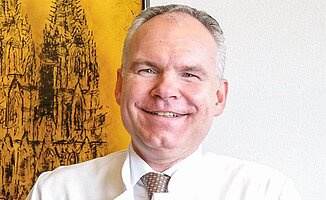Neurosurgery

Research focus
The Department of Neurosurgery belongs to the Wuerzburg Head- and Neck-Clinic and, based on its interdisciplinary context, provides comprehensive diagnostics and therapy for patients with tumors of the brain, spine, spinal cord and peripheral nerves, degenerative spine and disc disease, pain syndromes, peripheral nerve lesions, pituitary tumors and dysfunction, neurovascular disease, skull base tumors (jointly with department of ORL), movement disorders (jointly with Department of Neurology), psychiatric disorders (jointly with the Departments of Psychiatry and Neurology).
Infants and children with inborn malformations of the nervous system and of the skull and spine, with neoplasia and trauma are taken care of by the Division of Pediatric Neurosurgery. Special interdisciplinary treatment protocols have been established for patients with vascular malformations (in close cooperation with the Department of Neuroradiology), furthermore for patients with brain tumors together with radiotherapists and neurooncologists as well as for skull base lesions, namely vestibular schwannomas and meningiomas with ORL surgeons.
Clinical and experimental research is performed together with the Division of Experimental Neurosurgery and a multitude of cooperating clinics and institutes of the university and with external German and international institutes. Major topics of research are: Neuro-oncology, rare genetic diseases such as neurofibromatosis, functional microsurgery and neurostimulation, neurovascular disease, translational neurotrauma research, neurodegeneration and -regeneration, and craniofacial malformations.
contact: ernestus_r@ukw.de





